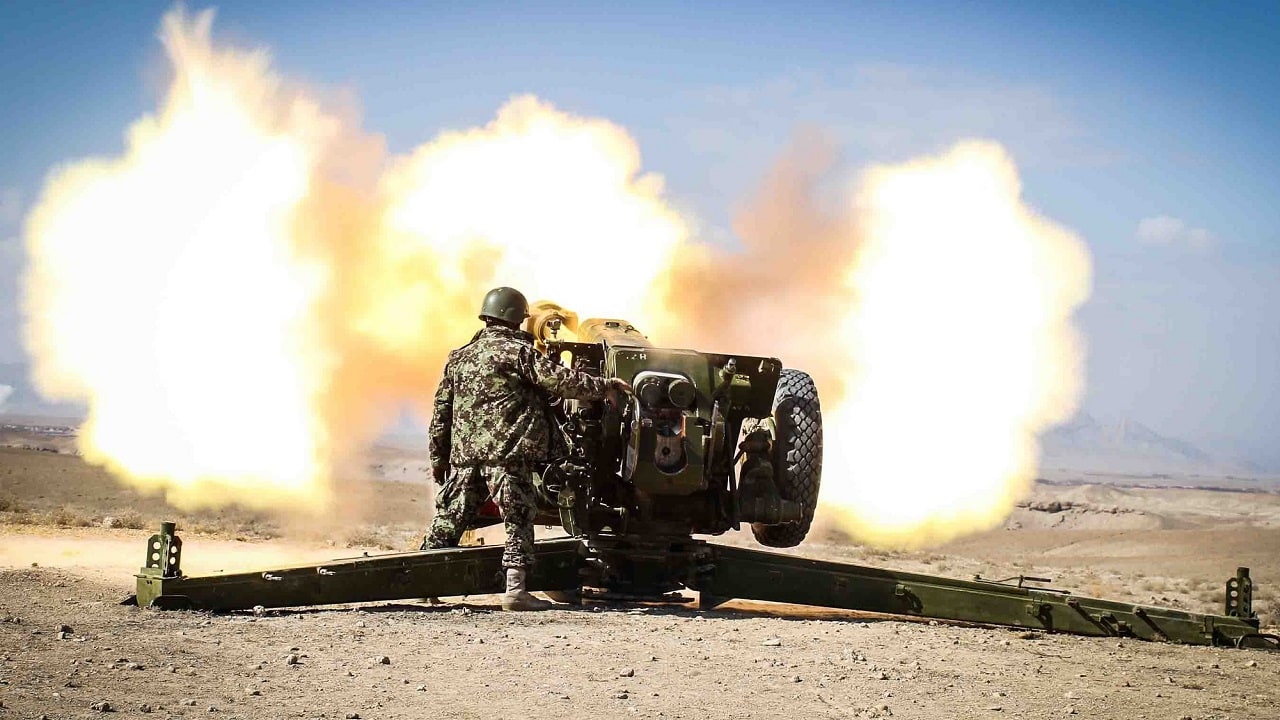On Thursday, the Ukrainian military rejected an offer from Russian President Vladimir Putin for a 36-hour ceasefire for Orthodox Christmas, which is on Saturday.
(Subscribe to Our YouTube Channel Here. Check out More 19FortyFive Videos Here)
The Kremlin had announced that the Russian leader ordered a ceasefire beginning midday on Friday following a call from Patriarch Kirill of Moscow, the head of the Russian Orthodox Church (ROC).
“I, Patriarch of Moscow and All Russia Kirill, call on all parties involved in the internecine conflict to establish a Christmas ceasefire from 12:00 p.m. Moscow time on January 6 to 12:00 a.m. on January 7 so that Orthodox people could attend church services on Christmas Eve and on Christmas Day,” the Russian Orthodox Church quoted its leader as saying in a statement, Tass reported.
Putin issued the order for a ceasefire on Thursday, stating, “Taking into account the appeal of His Holiness Patriarch Kirill, I instruct the Minister of Defence of the Russian Federation to introduce a ceasefire regime along the entire line of contact of the parties in Ukraine from 12:00 on January 6, 2023 to 24:00 on January 7, 2023.”
No Truce for Christmas in Ukraine
Despite the calls from Kirill and Putin, the offer was rejected out of hand, and Ukraine has said there will be no truce until Russia withdraws its invading forces from occupied land.
An adviser for Ukrainian President Volodymyr Zelensky described the calls for a Christmas ceasefire as a “cynical trap,” one that would benefit Russia far more than Ukraine.
“[The] ROC is not an authority for global Orthodoxy and acts as a ‘war propagandist’,” Mykhailo Podolyak told the Ukrainian state-owned news agency Ukinform. “ROC called for the genocide of Ukrainians, incited mass murder and insists on even greater militarization of [the Russian Federation].”
Podolyak, who accused the Kremlin of hypocrisy as they were the aggressor in the conflict, added, “Thus, ROC’s statement about ‘Christmas truce’ is a cynical trap and an element of propaganda.”
Kyiv, which has viewed the suggestion of a truce as an effort to buy time for Moscow, has indicated its forces won’t observe any truce.
Thursday’s ceasefire order is the first to come from Putin since the war began in February. It also comes just two days after Zelensky’s most recent warning that Russia was likely preparing for a major offensive as an attempt to “turn the tide” in the nearly 11-month-long conflict.
Different Christmas Days
There could also be another factor at play in Ukraine.
Many Orthodox Christians celebrate Christmas Day on or near January 7 as the date works to the Julian calendar that pre-dates the Gregorian calendar. However, last month many Ukrainians moved Christmas to December 25 to part ways with Russia. The leadership of the Orthodox Church of Ukraine supported the move of Christmas observations and celebrations.
As a result, the truce would benefit Russian troops more than Ukrainians. Yet, even if both were celebrating on the same day – war doesn’t typically stop for holidays, including Christmas.
The most famous “Christmas Truce” occurred on the night of December 24, 1914 – but even then the fiction makes it seem like it was a far more widespread affair than it really was.
Author Experience and Expertise: A Senior Editor for 19FortyFive, Peter Suciu is a Michigan-based writer. He has contributed to more than four dozen magazines, newspapers, and websites with over 3,200 published pieces over a twenty-year career in journalism. He regularly writes about military hardware, firearms history, cybersecurity, politics, and international affairs. Peter is also a Contributing Writer for Forbes and Clearance Jobs. You can follow him on Twitter: @PeterSuciu.

